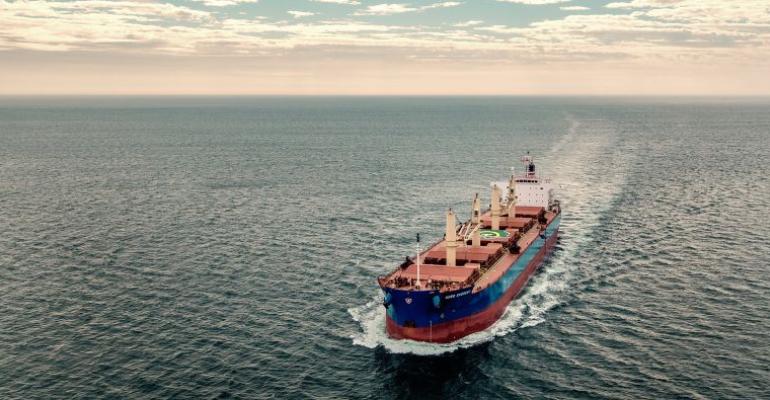Mash Makes develops and produces sustainable fuels from biomass waste. The investment will secure supplies of biofuel for Norden at favourable prices, according to a statement, and will guarantee access for the shipping company to future renewable biofuels when they become available.
Whereas ships deployed on particular routes can make arrangements to have suitable fuel supplies at these locations, the supply chain for vessels working in tramp trades if far more challenging.
Norden, which operates a fleet of more than 90 bulk carriers and tankers, will help the fuel provider to market its products in the marine market. The first of these fuels is at a late development stage and will be tested on board Norden ships early next year.
After that, the companies plan to scale up biofuel production so that Mash Makes becomes a significant supplier of sustainable fuels for Norden ships over the next three years. Fuels will be provided in strategically important locations to aid the decarbonisation of tramp shipping, they said.
Norden CEO, Jan Rindbo, said: “We cannot rely solely on traditional offtake agreements with fuel suppliers to achieve decarbonisation at the necessary speed that climate change requires. We need to be a grater part of the supply chain, to both ensure significant volumes and attractive prices that can make Norden competitive in offering low emission freight solutions to our customers.”
The company’s Head of Logistics & Climate Solutions, Adam Nielsen, added: “With this investment, we are turning our attention to the next generation of biofuels and scale up consumption of biofuel. The benefit of biooil is that it can be used in existing vessel technologies and bridge the gap between transitioning from fossil fuels to carbon-free fuels, which requires new vessel technologies.
Copyright © 2024. All rights reserved. Seatrade, a trading name of Informa Markets (UK) Limited.
Add Seatrade Maritime News to your Google News feed.  |

